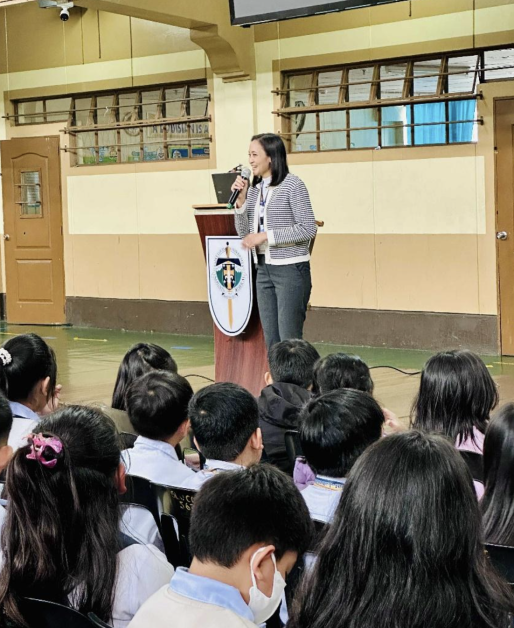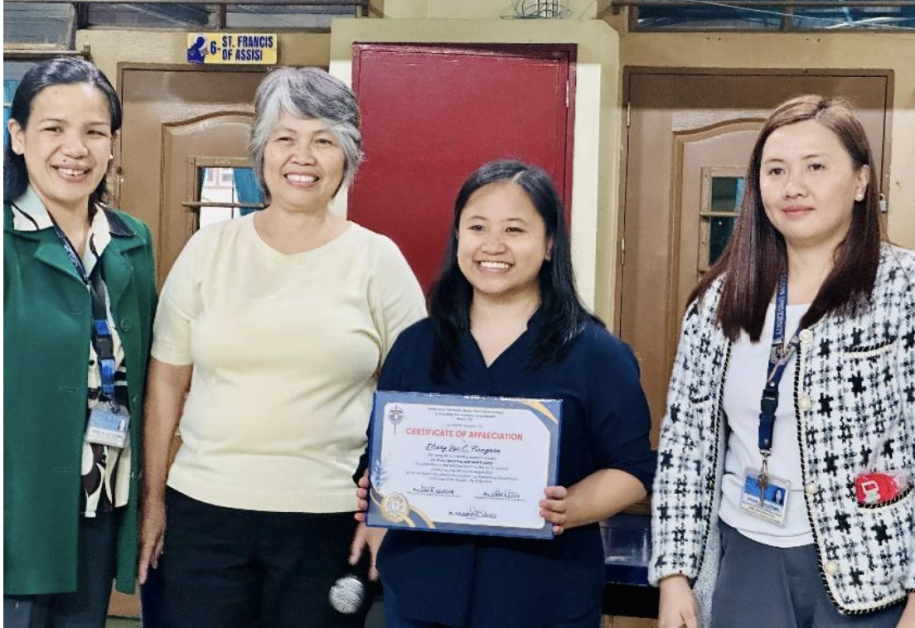In a world where nearly one-third of all food produced is wasted—about 1.3 billion tons annually—the environmental, economic, and social consequences are staggering. Food rotting in landfills generates methane, a potent greenhouse gas, contributing significantly to climate change, while millions face hunger globally. Addressing this challenge demands innovative solutions, and food upcycling shines as a beacon of hope, transforming waste into valuable resources while fostering sustainability.
On 14 August 2025, the “Food Upcycling and Food Pickling” activity was held at the St. Aloysius de Gonzaga Building, Saint Louis University Basic Education School-Laboratory Elementary Department (SLU BEdS – LED). It served as the culmination for Nutrition Month for grades 4-6, becoming a milestone in educational outreach. Through the leadership of Mrs. Leila M. Asuncion, EPP Learning Area Coordinator, the program engaged about 570 of the youngest yet in raising awareness on sustainable food practices.
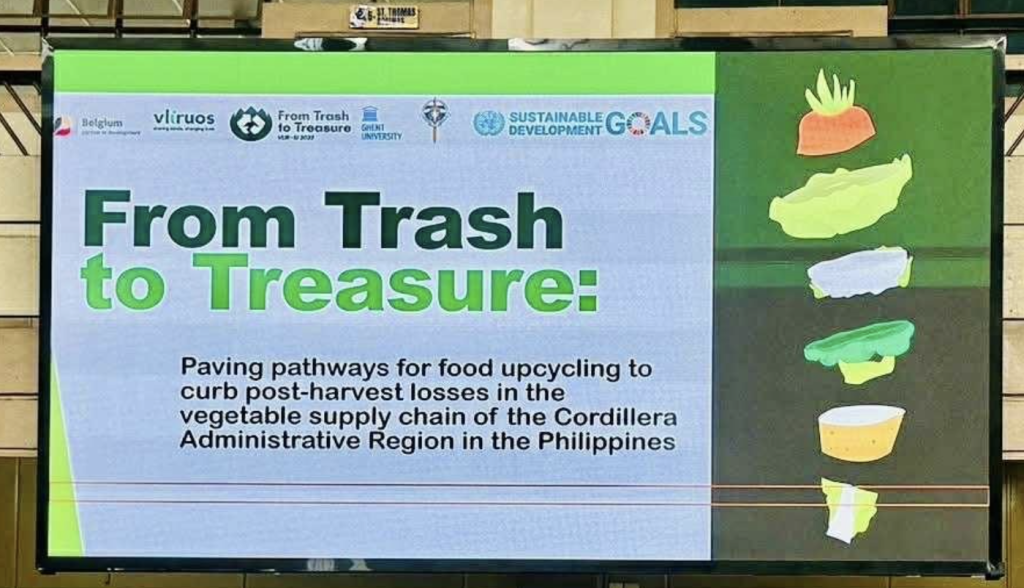

The children welcomed the initiative with radiant smiles and genuine curiosity. Many confessed they had never encountered the concept of food upcycling, but by the end of the lecture, they eagerly participated in slicing vegetables and tasting their pickled creations. Their enthusiastic recitations and focused attention for an entire afternoon defied expectation—proof that the right approach can ignite even the youngest minds.
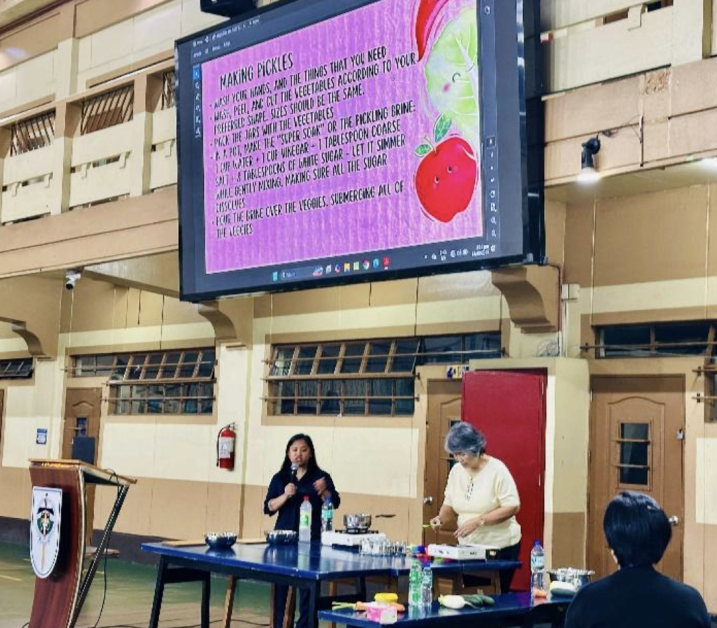
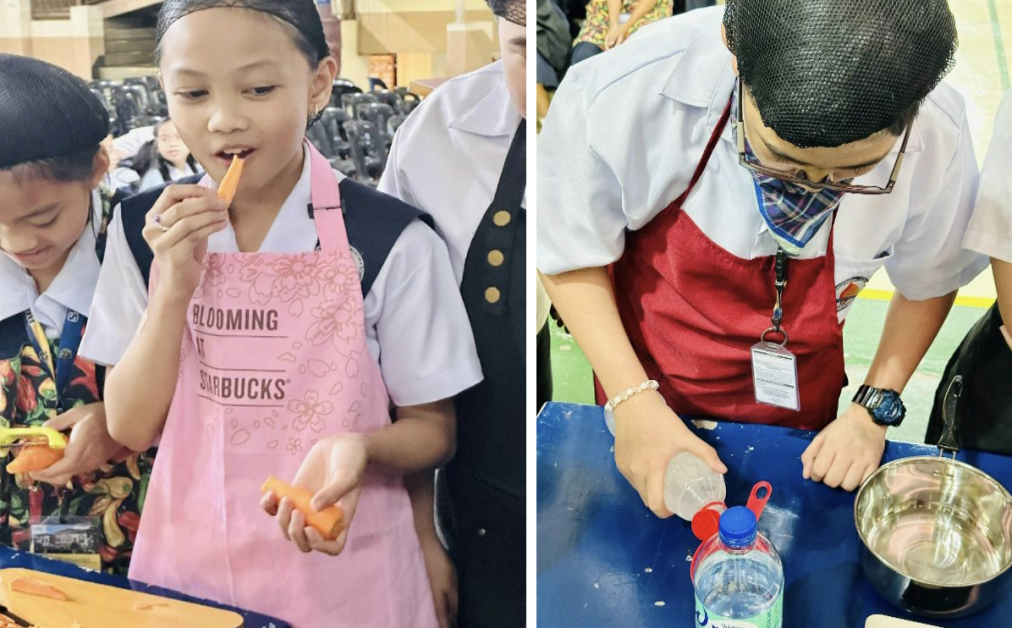
Agnes Repplier’s timeless words resonate strongly in this context: “It is as impossible to withhold education from the receptive mind as it is impossible to force it upon the unreasoning.” These young learners embodied receptiveness, highlighting the immense value of investing in knowledge, attitudes, and sustainable practices (KAP) early on.
The impact of such education goes beyond awareness. Teaching children to reduce food waste and innovate with sustainable food practices plants the seeds of global citizenship and ecological stewardship. This aligns directly with the United Nations Sustainable Development Goals (SDGs), particularly SDG 2 (Zero Hunger), SDG 12 (Responsible Consumption and Production), and SDG 13 (Climate Action).
Educational programs like those at SLU-LES are part of a broader movement across the Philippines. From Technology and Livelihood Education clubs transforming surplus vegetables into preserved products, to universities championing food innovation hubs, food upcycling education is gaining momentum as a practical and empowering tool for sustainability.
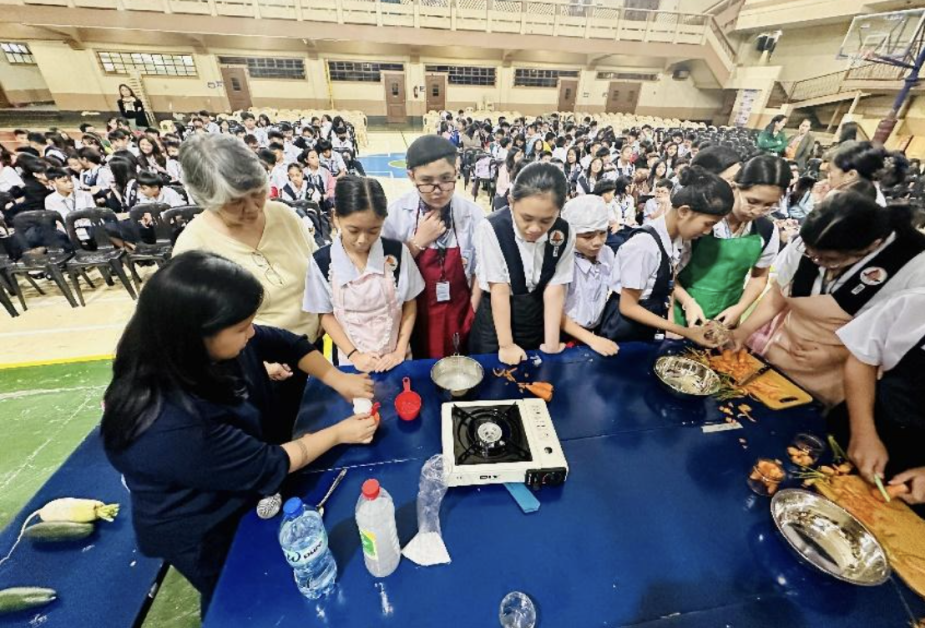
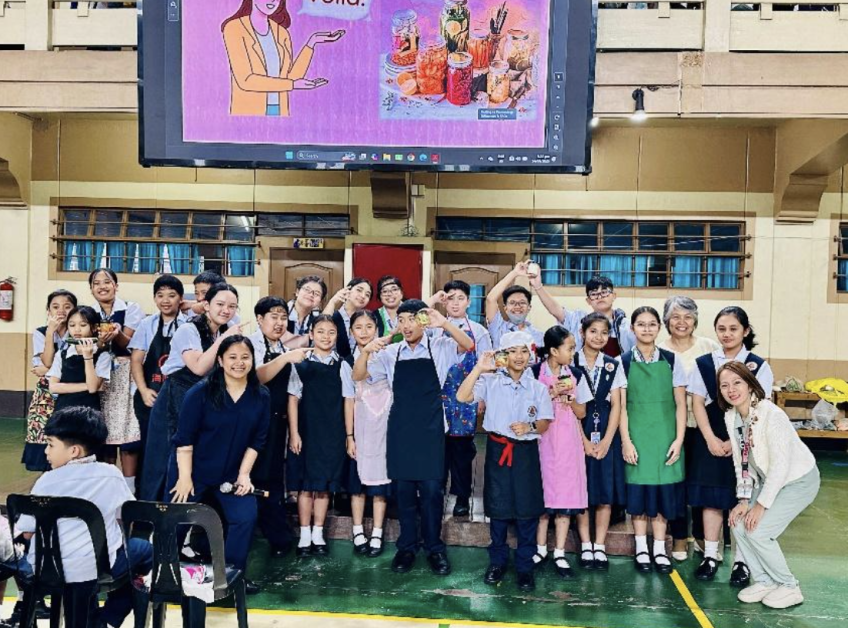
Why does this matter? Food upcycling is a strategy to combat waste and a catalyst for community empowerment. Repurposing food by-products creates opportunities for local economies, generates jobs, and provides affordable, nutritious options. This circular approach turns what was once discarded into treasures, benefiting people and the planet alike.
Calls to Action
- Support initiatives that bring food upcycling education to schools and communities.
- Encourage hands-on learning experiences that connect children with sustainable food practices.
- Advocate for policies that integrate sustainability and circular economy principles into curricula.
- Join community efforts to reduce food waste and promote upcycling as a means to fight hunger and climate change.
Our journey in the SLU–Gent University Flemish Interuniversity Council – University Development Cooperation (SLU-VLIR UOS) project reflects this vision. Reaching diverse stakeholders—educands, farmers, processors, and retailers—revealed a common thread of gratitude and hope. As conduits of grace, we are privileged to foster change that echoes beyond classrooms into the global movement for sustainability.
The road ahead is demanding but inspiring. With every young mind reached, every lesson imparted, and every skill practiced, we take a step closer to a greener, healthier future. Let us embrace the power of education to transform food waste, ignite passion in the youngest environmental stewards, and build resilient communities for generations to come. (Article and Photos by Jennet E. Razo and Mary Luz C. Fiangaan)
